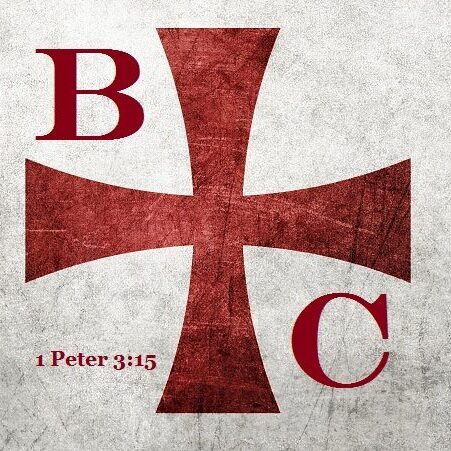By: Brian Chilton, PhD | November 11, 2022
The PhD program taught me many valuable spiritual lessons. It should be noted that PhD programs are not for the faint at heart. The level of academic pressure can take a toll on even the saltiest of individuals. Nearly all accredited doctoral programs will require at least 3–4 years of your time, with some taking up to 10 years to complete. In the first reflection on my PhD journey, I spoke about the calling that is necessary when entering an advanced theological program. This entry will peer into the lessons that the PhD program taught me through its duration and the needed perseverance required to finish. My hope is that this series will be beneficial for anyone who is either considering or has already started PhD studies.
Great Things Do Not Come Overnight—They Take Time
The PhD program takes a great deal of time, as previously noted. With a full-time job and caring for a family, I had to start off slowly. To make matters more difficult, I switched jobs at least twice during the program. With the moves and adaptation to the new positions, I was not able to load up on classes as I had desired.
Additionally, the dissertation is a process. Many who begin a PhD generally get stuck in the dissertation phase, leading many students to quit the program leaving them with a PhD ABD (all but dissertation). Such students find themselves in academic limbo because a successful dissertation defense is required to complete the PhD program. Many PhD graduates and professors alike warned me that the PhD is a marathon and not a sprint. They could not have been more right.
But this brings up an important spiritual principle. Great things do not come overnight. Rather, they take time. Our society is inundated with the idea that we can have what we want when we want it. However, anything of substance takes time to complete. The process requires patience and dedication. Galatians 5:22 states that patience is one of the fruit of the Spirit. While I fully admit that I still have a long way to go when it comes to being a patient person, I realize that God was teaching me this virtue as I progressed through the program.
How Do You Eat an Elephant? One Bite at a Time
Another principle I learned came from the advice of the late Dr. Ron Williams. In a Biblical Backgrounds class taken at Gardner-Webb University, Dr. Williams—the professor of the class—asked us students a question when we were overwhelmed with the class load at the beginning of the course. Rhetorically, Dr. Williams asked, “How do you eat an elephant?” None of us had an answer. He replied, “It’s easy. One bite at a time.”
Dr. Williams was right. Often, a person can become overwhelmed when faced with a daunting task. When I first started the doctoral program, I asked myself, “How am I ever going to get through 16 difficult intensives?” After the intensives were over, I then asked myself, “How am I ever going to get through this dissertation? It’s just too big!” Yet, by God’s grace, I was able to get through both.
I learned a few valuable tips when faced with a large, daunting task.
1. Make a checklist of all that needs to be accomplished with the larger goal in mind.
During the intensives, it helped to know what needed to be read and what needed to be written. Additionally, it was helpful to know what was more pressing. Think of the practice of triage in medical settings. Those tasks that were more dire received attention before those assignments which could wait awhile.
For the dissertation, it was helpful to have a working outline to know the chapters that needed to be written, the research necessary, and each segment within the individual chapters. Think of each section of the chapter as an assignment. Then, work to get through each subsequent section. If you keep completing the small sections, then you will eventually finish the chapter. See the third point in this list for more details.
2. Set daily and monthly goals.
Goal-setting was extremely important throughout the dissertation process. My good friend, Dr. Chris Berg, encouraged me to set up a good, solid outline as I completed my first chapter of my dissertation. From there, I set goals to have certain chapters completed in x-amount of time. For instance, I was determined to finish chapter 1 by the end of the first summer semester. Chapters 2 and 3 were scheduled to be completed by the end of 2021, and my goal was to finish Chapters 4, 5, and the conclusion by the end of the spring semester of 2022. These small goals provided a sense of accomplishment when they were achieved.
By finishing by the fall of 2022, I was allotted time to revise and edit during the summer semester of 2022, which also opened the door of opportunity for me to defend in the fall of 2022. Were there setbacks? Of course! But having a planned schedule helped me better organize myself and to find comfort in what lie ahead. In other words, goal-setting afforded a road map to chart my course.
3. Relish in the small victories.
I found it incredibly helpful to celebrate when I accomplished the small goals I had set for myself. After finishing a chapter, I would take a week off to treat myself and celebrate. Then, after the brief intermission, I would re-enter the academic world to churn ahead. These breaks and small celebrations helped me to find rest both mentally and spiritually. Self-care is extremely important during an academic program. So, make sure to treat yourself after each small accomplishment. Remember, small achievements eventually lead to major triumphs. A football team that continues to earn first downs will eventually find itself in the end zone with a scored touchdown.
If You Don’t Find Contentment Before a PhD, You Won’t Find it Afterward
The apostle Paul wrote, “I don’t say this out of need, for I have learned to be content in whatever circumstances I find myself. I know how to make do with little, and I know how to make do with a lot. In any and all circumstances I have learned the secret of being content—whether well fed or hungry, whether in abundance or in need” (Phil. 4:11–12, CSB). This is especially true for a PhD or any academic field of study. If you are looking for peace and contentment in your life before earning a PhD, you will continue to look for peace and contentment after finishing the PhD.
Life continues to move on. Some people will join you in celebrating your accomplishments, while others will only give your hard-earned achievement a passing glance. Even still, there will be others who think that you wasted your time and money, as some hold that Christians ought to live in a state of ignorance. Oh, I wish I was making that up. The point is that you cannot depend on an accomplishment, a job, or anything else to grant you the purpose that you find in your life. Your purpose and contentment must be found in your identity with God. Otherwise, the only difference in your life post-PhD is that you will find yourself in educated discontent.
The Humility That Should Be Found with a PhD
Finally, I learned a great deal of humility through the PhD program. No matter what topic you study, you will find an exorbitant mountain of material. For each point, there is an ample counterpoint, some with counterpoints to the counterpoints. The field of theology is like the Choose Your Own Adventure children’s book series that I enjoyed as a child. As one reads through the book, the reader chooses one of several options, each leading to different outcomes and other choices with even more outcomes.
Such is with the study of God. When you go through one of several doors of God’s nature, the student finds himself or herself faced with ten more doors, each leading to hundreds more, then thousands, even to infinity. Therefore, I believe that we will spend all eternity learning more and more about God. Because I do not think that we will ever understand the depth, width, and height of God’s being, I think our endless time in heaven will open more and more doors of understanding about the beauty of God’s ontological and epistemological nature.
Because of my exposure to such incredible volumes of literature with some of the greatest minds throughout history, I get a bit perturbed when I hear a person claim that he or she has all the knowledge needed about God, or that a person thinks that he or she holds all the details of God’s exquisite nature. That is the epitome of absurdity and arrogance! If one were to know everything about God, then that person would be God! The further I progressed through the PhD program, the more I realized that I would never know everything about God, and that’s okay. God is God, and I am not. But this does not only concern the nature of God, it is true with any field of study. There will nearly always be more books and information on a topic than any person could ever master.
Conclusion
I am incredibly indebted to God, my professors, and the university for my experiences in the PhD program. I can honestly say that I am a much better person coming through the PhD program than I was when I started. In many ways, God has humbled and refined me in ways that would not have been possible if I had never journeyed this path. I hope the insights I shared in this article are helpful for you no matter if you are in an academic field of study or just simply facing a major daunting task in life.
In my last and final reflection essay, I will speak on an issue that startled me while in the PhD program—especially in the dissertation phase—and that is the spiritual warfare that occurred during this course of study. If you are going to do something for the Lord, you should expect some major pushback from the enemy. This pushback only increases the closer you come to finishing. We will spend some time discussing these issues in my final reflection essay on my PhD journey.
About the Author

Brian G. Chilton earned a Ph.D. in the Theology and Apologetics program at Liberty University. He is the host of The Bellator Christi Podcast and the founder of Bellator Christi. Brian received his Master of Divinity in Theology from Liberty University (with high distinction); his Bachelor of Science in Religious Studies and Philosophy from Gardner-Webb University (with honors); earned a Certificate in Christian Apologetics from Biola University, and plans to purse philosophical studies in the near future. He is also enrolled in Clinical Pastoral Education to better learn how to empower those around him. Brian is a member of the Evangelical Theological Society and the Evangelical Philosophical Society.
Brian has served in pastoral ministry for nearly 20 years and currently serves as a clinical hospice chaplain and interim pastoral work. Additionally, he serves as an editor for the Eleutheria Journal. At the prompting of the Lord, Brian established Bellator Christi Ministries in 2012. The ministry is aimed to provide readily available resources in theology, apologetics, biblical studies, and philosophy to those who want to know what Christianity teaches and why it should be believed. In 2019, Brian published his first book entitled the Layman’s Manual on Christian Apologetics. After finishing his Ph.D., Brian intends to publish more books. His areas of expertise include early Christology, early NT creeds, near-death experiences, biblical reliability, the blend of divine sovereignty and human freedom, and the need for empathy.
https://www.amazon.com/Laymans-Manual-Christian-Apologetics-Essentials/dp/1532697104
Copyright, 2022. BellatorChristi.com.






[…] Source: Reflections on My PhD Journey (Part Two)–Spiritual Lessons Learned Through the Program […]